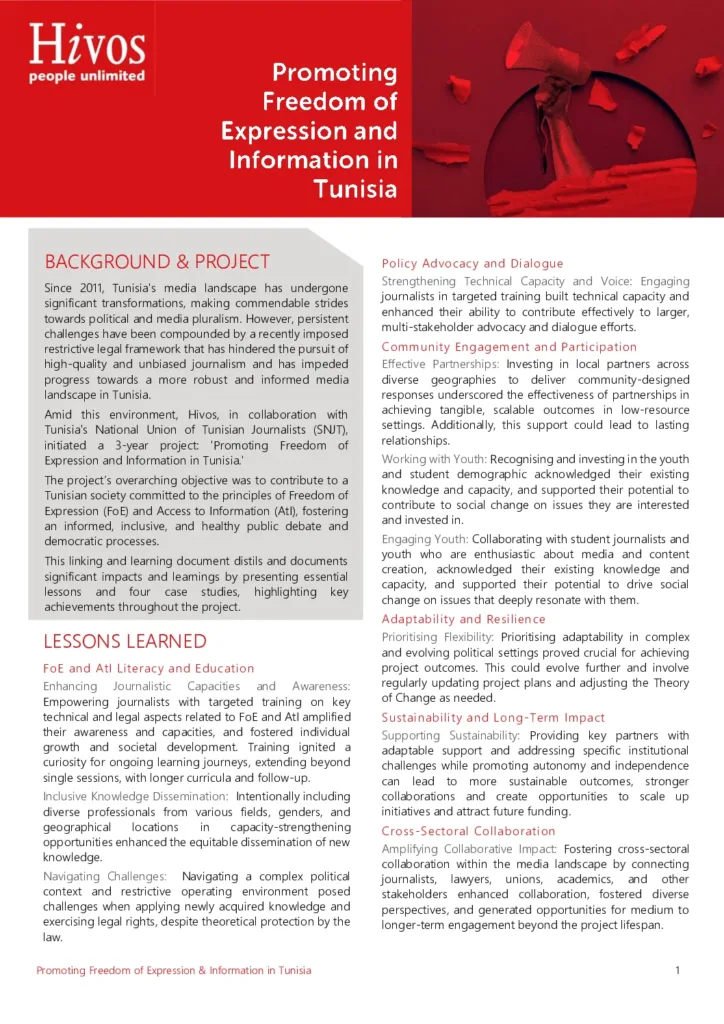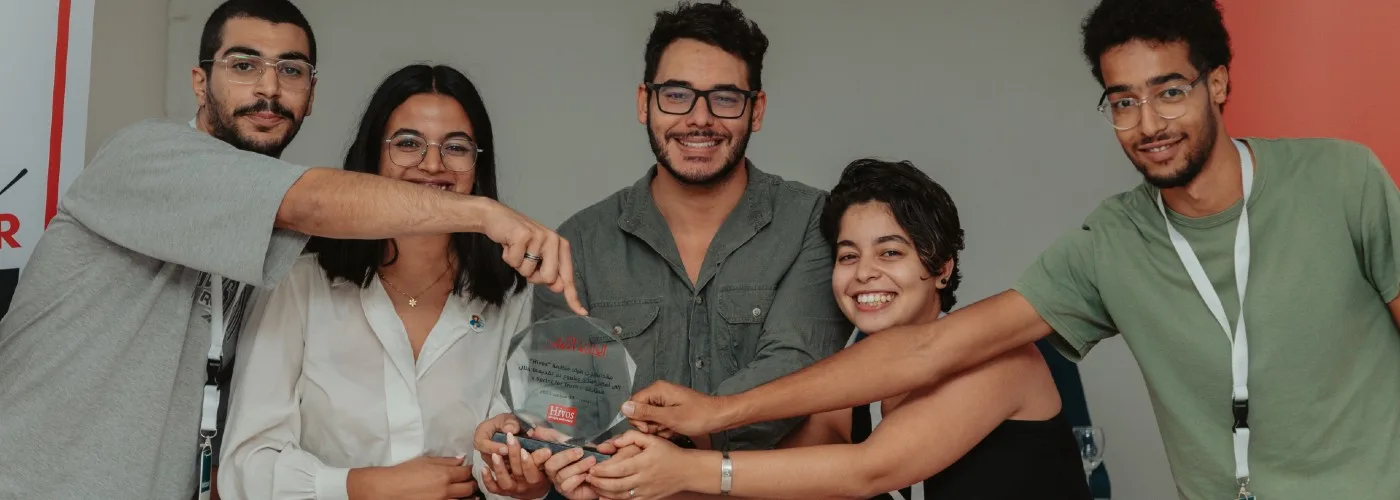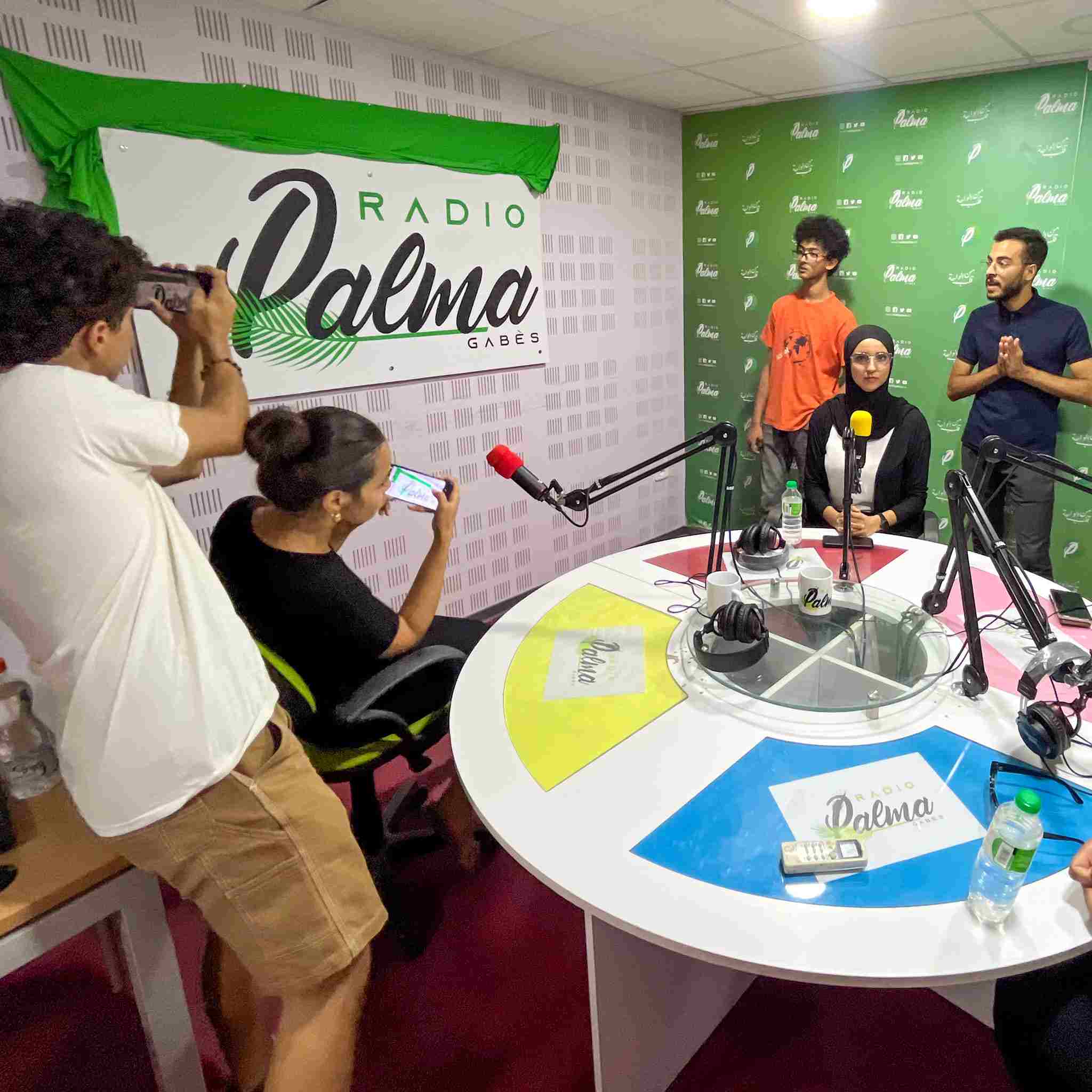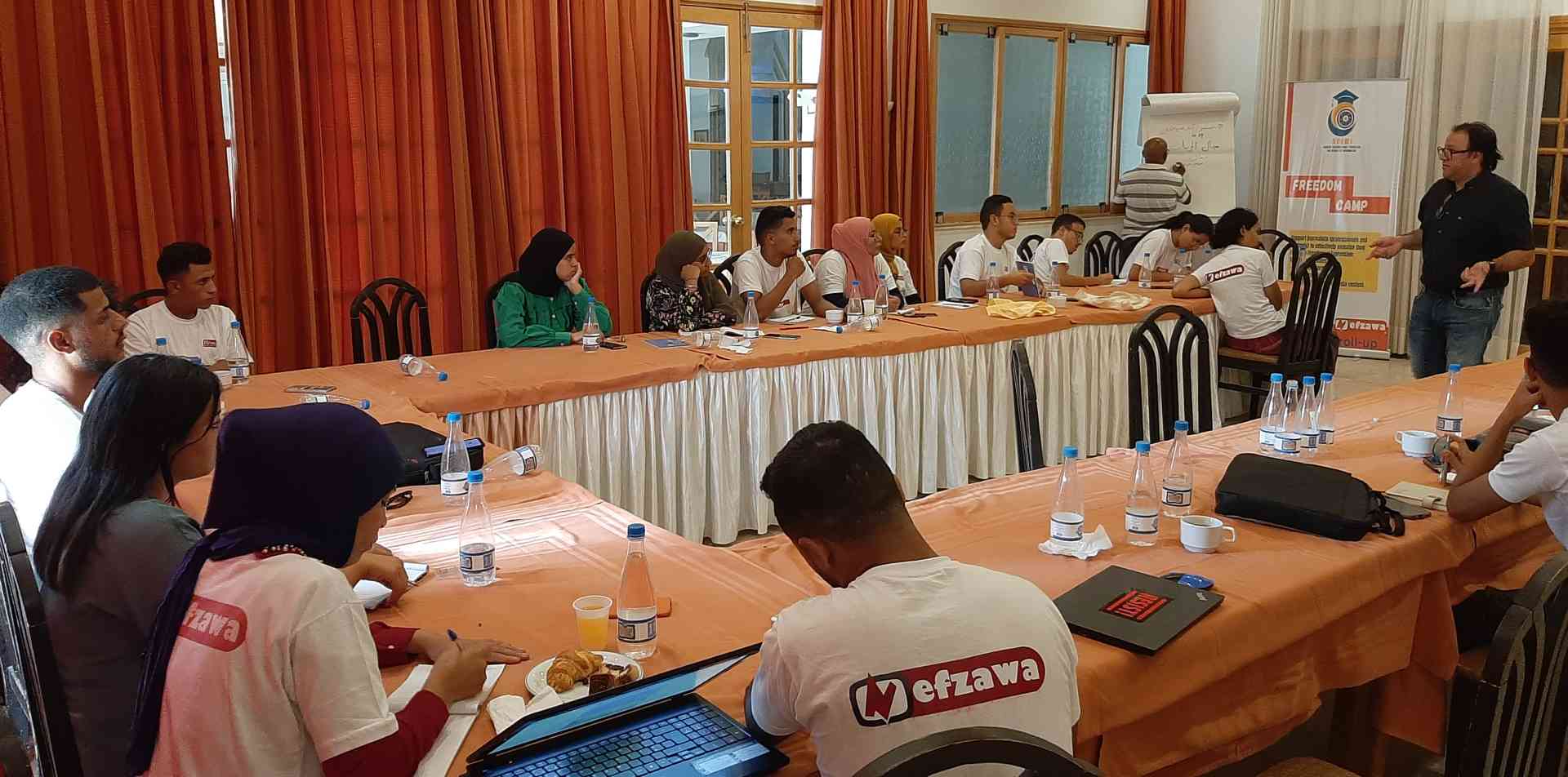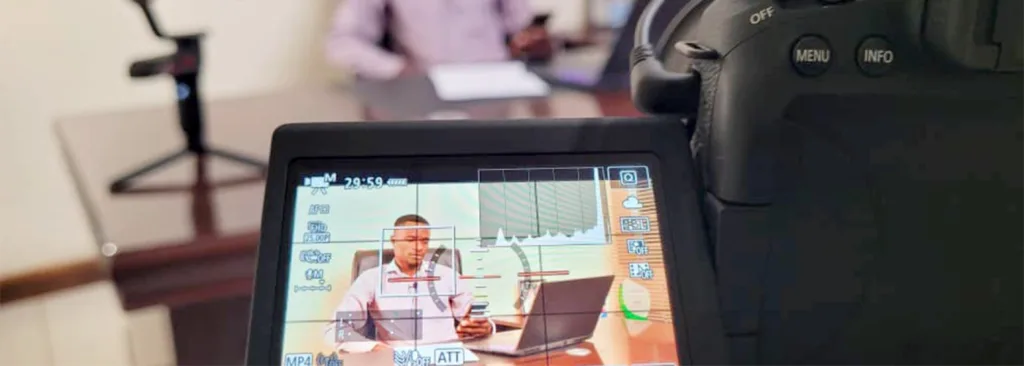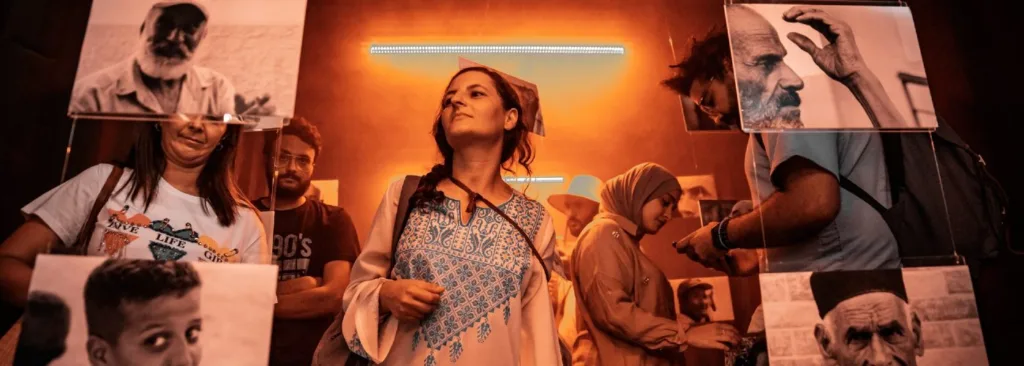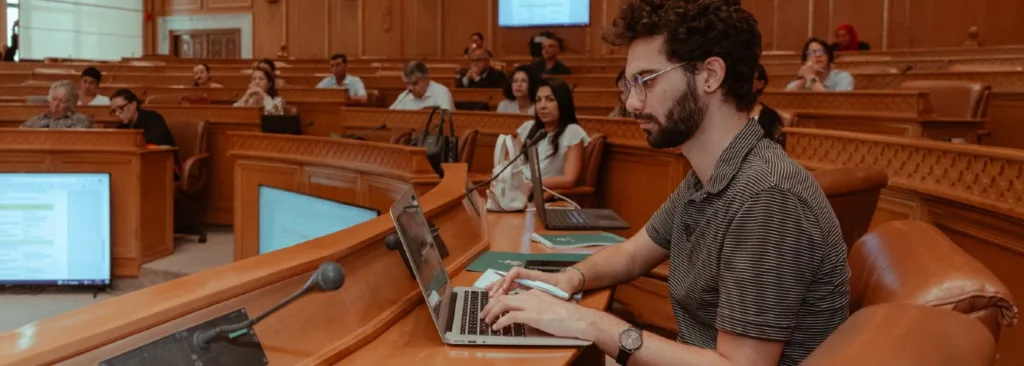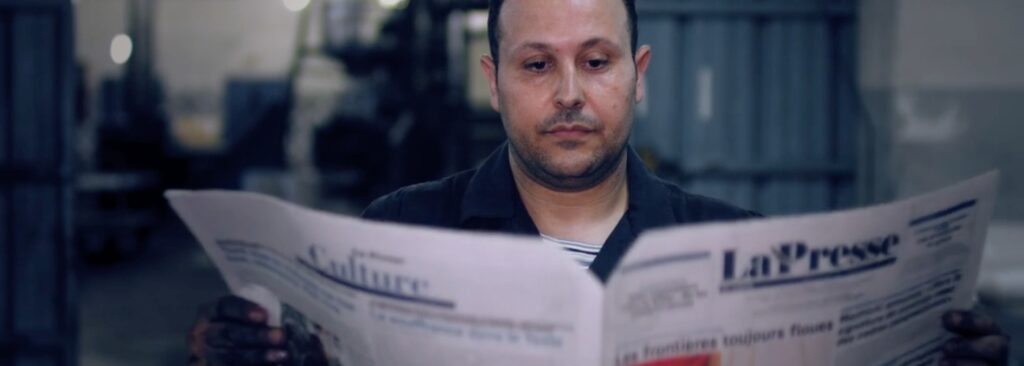Since the 2011 Revolution, Tunisia has experienced significant changes in its media landscape, including positive efforts to increase pluralism. But more recently, exceptional measures and restrictive laws have hindered unbiased and high-quality journalism. In fact, Tunisia’s ranking on the World Press Freedom Index plummeted from 73 to 121 between 2011 and 2023. In response to the trend, Hivos partnered with Tunisia’s National Union of Tunisian Journalists (SNJT) in 2020 on a three-year project titled “Promoting Freedom of Expression and Information in Tunisia.”
Broadly, the project aimed to promote Freedom of Expression (FoE) and Access to Information (AtI), while stimulating informed public debate and democratic participation. Its key strategies included a special fact-checking unit (Tunifact), awareness campaigns, advocacy efforts, and training. These strategies aligned with the project’s three key objectives: giving journalists a thorough understanding of their constitutional rights; fostering collaboration between policymakers, officials, and the media; and making citizens aware that freedom of expression and information are essential for a healthy democracy.
Addressing mis/disinformation
One of the project’s key initiatives was the Tunifact fact-checking unit. Established in 2021, it tackled the waves of fake news flooding the media and provided clarity and factual information for Tunisian citizens. Tunifact conducted 1395 fact checks and 84 in-depth analyses between 2021 and 2023 alone. Editor-in-chief of Tunifact, Yasmine Dakhli, underscored the need for the initiative: “No one can deny that the media landscape in Tunisia is full of mis/disinformation […] controlled by politicians, pseudo-experts, columnists, and social media influencers. They usually throw around numbers or information without evidence.”
Training local journalists
Journalists from all over the country received specialized training to better navigate Tunisia’s relevant legislation and learn investigative and data journalism techniques. These sessions helped local journalists create high-quality reporting, identify potential threats to freedom of expression and ways of responding, and tell untold stories with new skills and expanded networks.
Investing in localized solutions
In March 2023, mini-grants were awarded to three local proposals the project had picked strategically to raise citizen awareness of FoE and spark demands for accountability. “The experience empowered participants to combat disinformation, understand their rights, and produce creative projects that contribute to the community’s freedom of expression,” said Majdi Draouil, recipient of a mini-grant for his “Freedom Camp” in Kebili, in southern Tunisia. “These grants demonstrate a commitment to addressing practical concerns and ensuring sustained impact on freedom of expression and access to information in Tunisia,” he added.
Success despite the odds
Despite the current restrictive political context and threatening environment for journalists, the project enhanced the skills and legal knowledge of 156 journalists, forged numerous community engagements and partnerships, and established sustainable fact-checking practices that will have a lasting positive impact on Tunisian journalism.
